
1 African violet
SAINTPAULIA IONANTHA
African violets are a bit fussy, but some simple tips make their care easier. They don't like getting their leaves wet, so water them from underneath by filling the saucer with linch of water and setting the pot on top for up to 30 minutes or until the soil is moist. Another trick: Keep your African violets in bright but indirect light. An east-facing window is perfect.
Why we love it: The purple of the flowers adds a color pop to any room.
2 Sweetheart hoya
HOYA KERRII
The charming heart-shaped leaves are where sweetheart hoya gets its adorable name. Typically grown in a hanging basket, sweetheart hoya can be trained to climb a trellis, too. It does well in direct or indirect light and can go two or three weeks between waterings.
Why we love it: An individual leaf cutting from sweetheart hoya can be planted upright in a small pot and will grow for a few years, making it a good Valentine's Day gift.
3 Cast iron plant
ASPIDISTRA ELATIOR
As its name implies, the cast iron plant is tough. It tolerates a wider range of humidity, light conditions, temperatures and watering frequency than most houseplants. Wipe the big leaves free of dust with a damp cloth.
Why we love it: Cultivars such as Milky Way and Variegata feature white speckles or stripes, adding fun details to an already striking plant.
SHOP SAFE
Before bringing a new plant home, see if it's toxic to any furry friends in the house. The American Society for the Prevention of Cruelty to Animals website, aspca.org, offers comprehensive info. Just search for the name of the plant.
4 Watermelon peperomia
This story is from the December 2021/January 2022 edition of Birds & Blooms.
Start your 7-day Magzter GOLD free trial to access thousands of curated premium stories, and 9,000+ magazines and newspapers.
Already a subscriber ? Sign In
This story is from the December 2021/January 2022 edition of Birds & Blooms.
Start your 7-day Magzter GOLD free trial to access thousands of curated premium stories, and 9,000+ magazines and newspapers.
Already a subscriber? Sign In
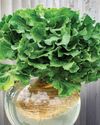
Basics of Hydroponics
Use these top tips and plant picks to have a successful soil-free garden
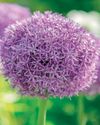
Rooted in Resilience
These hardy perennials will thrive in most zones
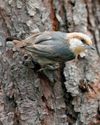
Social and Supportive
Brown-headed nuthatches take a helpful approach to raising their young
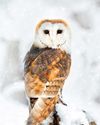
All About Owl Pellets
And why you should give a hoot about them
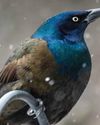
Ask the Experts
Advice from our pros about houseplants, bird feeding and more
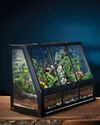
BRING THE OUTDOORS IN
Making a terrarium is about as close as you can get to a Zen DIY project. Once you have gathered the proper materials and squared away your plant selections, it's as simple as layering it all together and watching your mini ecosystem thrive. Here, I'll walk you through my foolproof process and cover all the required elements for good filtration, healthy soil, strong root growth and resistance against fungus and disease.

GROW THIS. NOT THAT
Six easy-to-grow houseplants—and six that may not be the right choice for you

Winter MAGIC
Forecasts may be frigid, but grab your binoculars because birding opportunities are still incredible
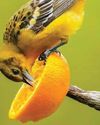
Sense or Nonsense? - Why some birds can taste and smell - but others can't
Does a porcelain berry taste like a blueberry to a gray catbird? Does a block of lard smell like frying bacon to a northern flicker? The short answer is no. While some avian species do have a well-adapted sense of taste or smell, they can't distinguish between flavors and odors the way humans can. They're not picking up every ingredient in the suet you put out, says José Ramírez-Garofalo, an ornithology researcher at Rutgers University in New Jersey and the director of Freshkills Biological Station in Staten Island, New York.

Maple Mania - Amazing facts about this fall foliage mainstay
Amazing facts about this fall foliage mainstay